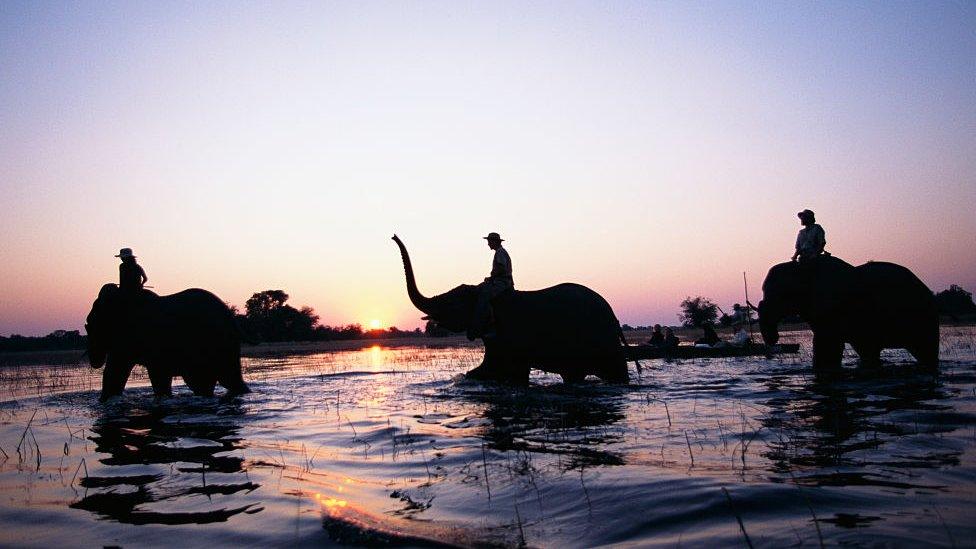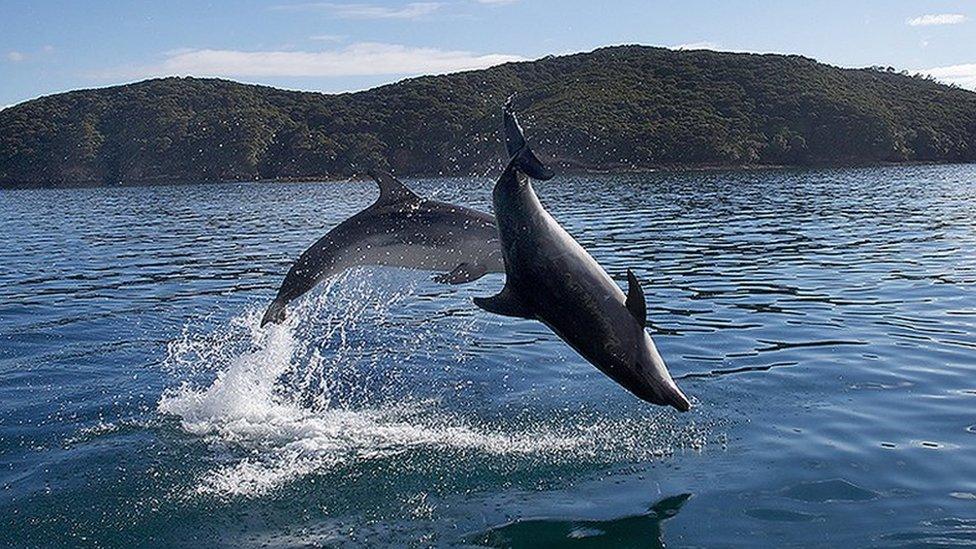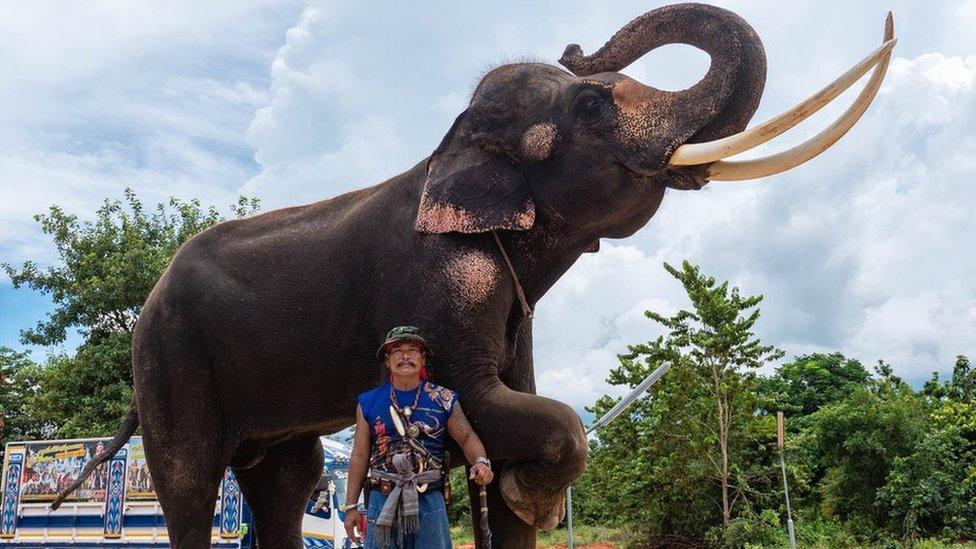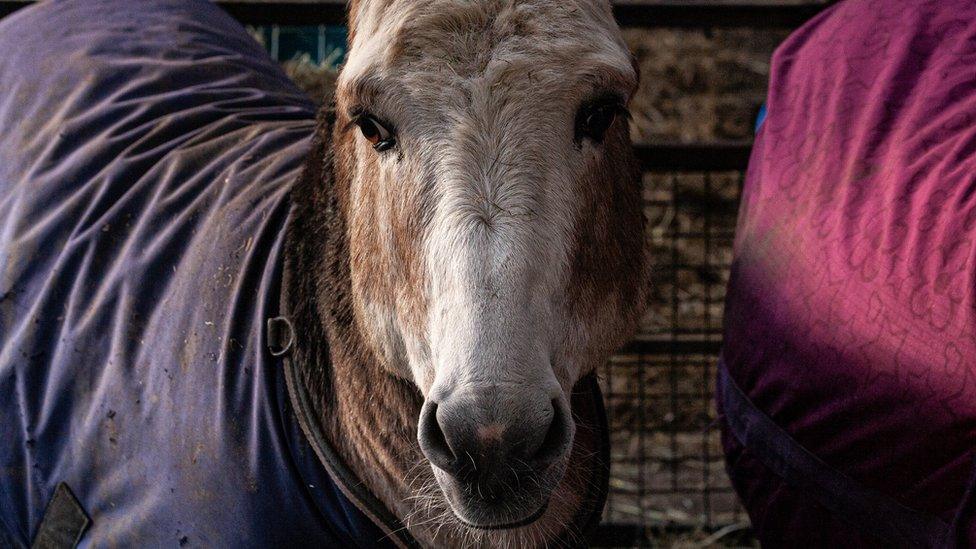Ban on sale of animal-exploiting trips, given initial support by MPs
- Published

A proposal to ban the sale and advertising of tourist trips which exploit animals has been initially approved by MPs.
Tory Angela Richardson said her bill would steer tourists towards activities where animals were "treated properly".
The MP said that at some attractions dolphins were starved of food and confined to small tanks while elephants were chained and beaten with hooks.
The proposal has government backing, meaning it is likely to become law.
Environment Minister Trudy Harrison said she understood why people "would want their children to have an experience with a wild animal", but added: "The clue is in their description.
"It's important the experience is about observing, not forcing the changed behaviour of a wild animal to enable our up-close and wholly unnatural experience."
Ms Richardson's Low Welfare Activities Abroad Bill would apply in England, Wales and Northern Ireland, and it would be up to the devolved governments to decide which activities would be included in the ban.
In 2016, the World Animal Protection charity identified a list of the most harmful activities, which included elephant rides, tiger cub selfies and snake charming.
Labour's shadow Home Office minister Holly Lynch expressed support for the bill, telling MPs that Asian elephants were "beaten and bruised" to ensure they could be easily used for tourism activities.
"Appealing advertisements from well-known and influential companies hide the cruelty from tourists who do not realise the enormous suffering from the animals involved," she said.
Introducing her bill to Parliament, Ms Richardson said the UK had a strong record in animal welfare but said it was important "not to rest on its laurels".
Her bill targets advertisers but she also urged the government to take action against social media influencers promoting activities with poor animal welfare standards.
"They may not be one of the companies that we are targeting today, but they often receive money and payment and an endorsement for promoting these activities," she said.
Having been approved at its second reading, the bill will now receive further scrutiny from MPs.
- Published29 August 2019

- Published3 January 2023

- Published18 August 2022
